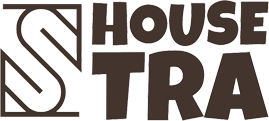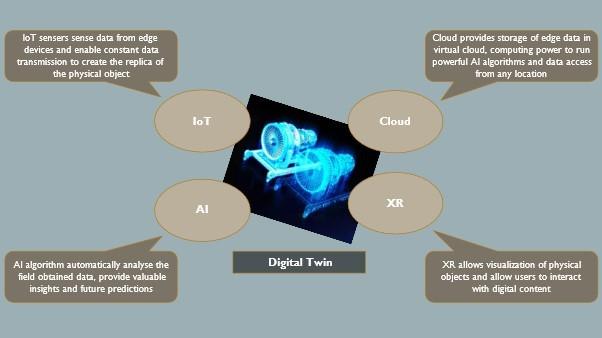In the twilight hours of modern life, where the pace of existence often outstrips the natural rhythms of our bodies, the quest for restorative sleep has never been more urgent. As we stand on the brink of a new era in health technology, sleep tech wearables are emerging as pioneers in this vital pursuit.These innovative devices, equipped with complex sensors and driven by artificial intelligence, promise to transform the way we understand and enhance our nightly rest. By harnessing the power of predictive analytics, they offer insights that go beyond mere monitoring, paving the way for personalized sleep strategies that cater to our unique needs. In this article, we delve into the future trends shaping the landscape of sleep tech wearables, exploring how they are revolutionizing our approach to sleep wellness and what lies ahead in this burgeoning field of technology. Join us as we uncover the potential of these tools to not only track our sleep patterns but to awaken a deeper understanding of one of life’s most essential processes: the art of sleeping well.
Revolutionizing Rest: The Role of AI in Sleep Optimization
The integration of AI in sleep tech wearables is fundamentally changing how we understand and enhance our sleep patterns. By analyzing vast quantities of user-generated data, these devices employ advanced algorithms to offer personalized recommendations, transforming the way individuals approach their nightly rest. Some of the primary functionalities of AI in this realm include:
- Real-time Monitoring: Continuous observation of biometric signals such as heart rate and movement to understand sleep cycles.
- Personalized Insights: Tailored feedback on sleep quality and habits, offering actionable advice for improvement.
- Predictive Modeling: Utilizing historical data to forecast sleep disruptions and optimize users’ bedtime routines.
- Adaptive Technology: Machines that learn from user behaviors, adjusting settings like light and temperature to foster an ideal sleep environment.
The results of these advanced technologies not only encourage healthier sleeping habits but also contribute to wider discussions about lifestyle and well-being. Sleep optimization is no longer a one-size-fits-all solution. Instead, AI-driven wearables are paving the way for bespoke approaches tailored to the unique needs of each individual. Consider the following features that exemplify this trend:
| Feature | Description |
|---|---|
| Sleep Stage Analysis | Determines time spent in REM, light, and deep sleep. |
| smart Alarm | Wakes users during the lightest sleep stage for a refreshed feeling. |
| Breathing Exercises | Guides users through relaxation techniques before bedtime. |

Sensors at the Forefront: How Wearable Technology Enhances Sleep Monitoring
Advancements in sensor technology are reshaping the way we approach sleep monitoring. Wearables equipped with cutting-edge sensors enable users to gain deeper insights into their sleep patterns and overall sleep quality. These devices can track a myriad of metrics, including:
- Heart Rate Variability: A critical indicator of stress and recovery levels.
- Sleep Stages: Differentiation between REM, light, and deep sleep.
- Movement Analysis: Monitoring restless nights or disturbances.
- Environment Factors: Assessing room temperature, noise levels, and light exposure.
Moreover, the integration of AI with these sensors enables predictive analytics, offering personalized recommendations tailored to individual sleep needs. For instance, by analyzing user data over time, wearables can suggest optimal bedtime routines or lifestyle adjustments to promote better rest. The potential of these technologies extends beyond mere data collection, evolving into a holistic approach to improving sleep health. By enhancing self-awareness and providing actionable insights, these wearables empower users to take control of their sleep hygiene.

Predictive Analytics: Shaping Personalized Sleep Solutions for better Health
As the landscape of sleep technology evolves, predictive analytics is emerging as a pivotal force in crafting tailored sleep solutions for individuals. By harnessing vast volumes of biometric and behavioral data from wearable devices, algorithms are now capable of anticipating sleep patterns and potential disruptions before they occur. This capability not only enables the customization of sleep recommendations but also enhances overall well-being through proactive measures. Consider these elements that contribute to this innovation:
- Data collection: Continuous monitoring of sleep cycles, heart rate, and environmental factors.
- Personalized Feedback: Real-time suggestions based on user-specific data.
- Predictive Alerts: Warnings about potential disturbances, allowing for preemptive action.
The integration of AI with advanced sensors will further refine the capability of wearables to make accurate predictions about sleep health.These devices can learn from each individual’s unique patterns, thereby adjusting recommendations for optimal sleep hygiene.Take a look at the potential distinctions that can arise from implementing predictive analytics:
| Traditional Methods | Predictive Analytics Approach |
|---|---|
| General Sleep Guidelines | Dynamic, user-specific recommendations |
| Reactive Alerts (post-disruption) | Proactive alerts predicting disruptions |
| Fixed Sleep Goals | Flexible goals based on behavioral patterns |

Future Innovations: Recommendations for Embracing Sleep Tech Wearables
In the ever-evolving landscape of sleep technology, it is indeed crucial for users to stay informed and adaptable in order to maximize the benefits of sleep tech wearables. Adopting a proactive approach can enhance sleep experiences significantly. Here are some recommendations to consider:
- Educate Yourself: Regularly research advancements in sleep technology, focusing on AI capabilities, dynamics of new sensors, and developments in predictive analytics.
- Personalize Settings: Customize your devices based on your individual sleep patterns, preferences, and goals. This increases effectiveness and personal satisfaction.
- Integration with Health Systems: Leverage analytics by integrating wearable data with healthcare platforms for a extensive view of your health and sleep.
Furthermore, as sleep tech wearables continue to evolve, consider engaging with manufacturers and developers to contribute feedback on your experiences. This feedback is invaluable for driving future innovations. To keep track of trends and innovations, you might also find value in leveraging user communities:
| community Type | Benefits |
|---|---|
| Online Forums | Exchanging user experiences and tips. |
| Social media Groups | Staying updated with latest trends. |
| Webinars | Learning from industry experts. |
Concluding Remarks
As we stand on the brink of a new era in sleep technology,the possibilities seem as boundless as our dreams. The convergence of artificial intelligence, advanced sensors, and predictive analytics is set to redefine our relationship with sleep, transforming it from a mysterious state of unconsciousness into a science that can be understood and optimized.
Imagine a world where your wearable device not only tracks your sleep patterns but also learns from them, offering personalized insights that empower you to achieve your best rest. This future could bring about a holistic approach to well-being, where sleep becomes not just a necessity but a cornerstone of a healthy lifestyle.
However, as we embrace these advancements, it is crucial to remain mindful of the balance between technology and the intrinsic human experiance of sleep.While wearables can illuminate the path, they should serve to enhance our natural rhythms rather than interfere with them.
In this exciting landscape, we invite you to stay engaged and informed, as both innovations and challenges will undoubtedly emerge. The future of sleep tech wearables is not just about better devices; it’s about deeper understanding, improved well-being, and finding harmony between our digital tools and our biological needs. Sweet dreams may soon come equipped with a tech-savvy twist,guiding us to rest that rejuvenates both mind and body.



